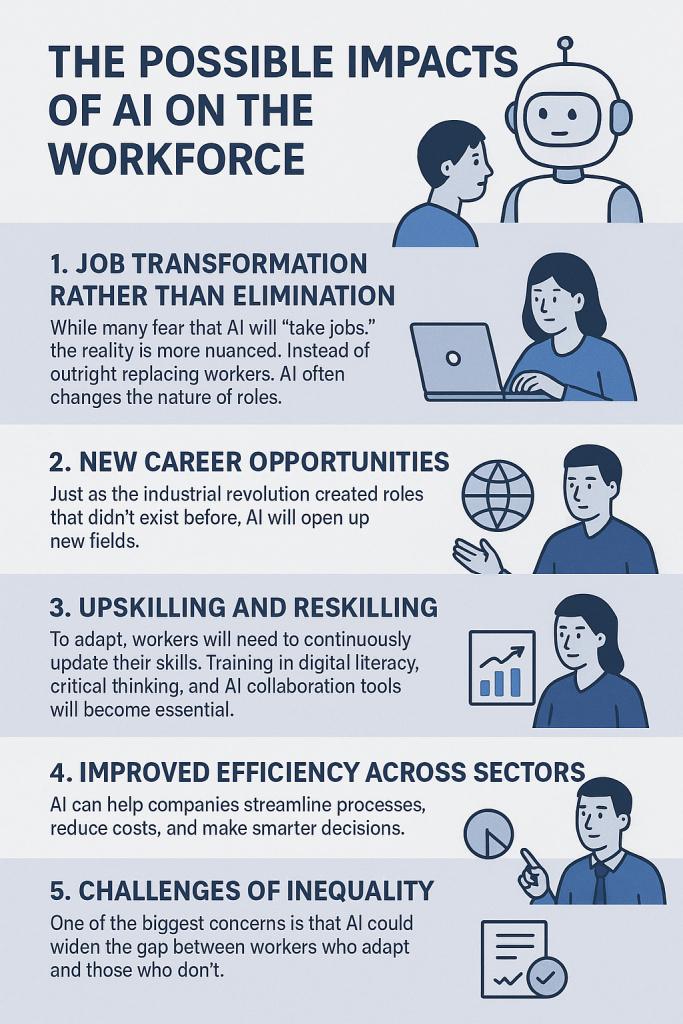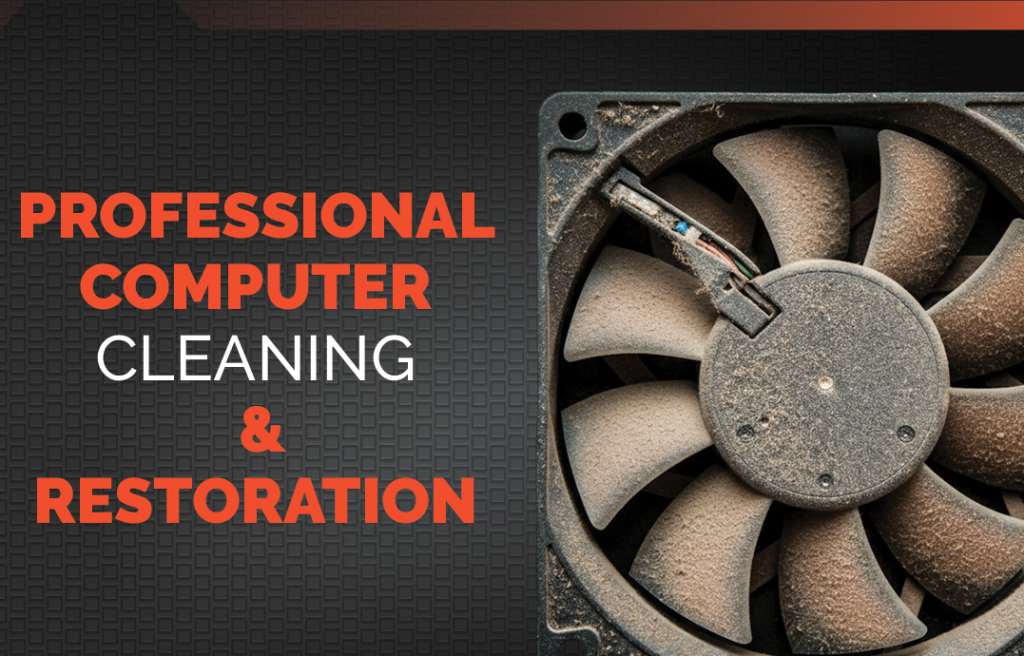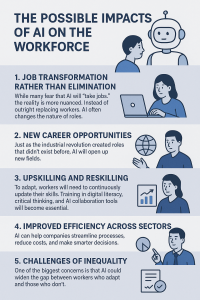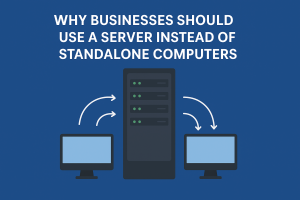Will AI Impact Jobs
The Possible Impacts of AI on the Workforce
Artificial Intelligence (AI) is no longer a futuristic concept—it’s here, reshaping the way we live and work. From automation in manufacturing to advanced chatbots in customer service, AI is influencing nearly every industry. But what does this mean for the workforce? Let’s explore some of the potential impacts.
- Job Transformation Rather Than Elimination
While many fear that AI will “take jobs,” the reality is more nuanced. Instead of outright replacing workers, AI often changes the nature of roles. Routine, repetitive tasks can be automated, freeing employees to focus on problem-solving, creativity, and human interaction—areas where machines still struggle. - New Career Opportunities
Just as the industrial revolution created roles that didn’t exist before, AI will open up new fields. Careers in AI development, data analysis, cybersecurity, and ethics oversight are growing rapidly. The demand for workers who can build, manage, and guide AI systems is only expected to increase. - Upskilling and Reskilling
To adapt, workers will need to continuously update their skills. Training in digital literacy, critical thinking, and AI collaboration tools will become essential. Businesses that invest in upskilling their teams will likely see smoother transitions and increased productivity. - Improved Efficiency Across Sectors
AI can help companies streamline processes, reduce costs, and make smarter decisions. In healthcare, for example, AI can analyze medical data faster than humans, aiding in quicker diagnoses. In logistics, it can optimize supply chains and reduce delays. While this boosts efficiency, it also shifts the type of skills employers seek. - Challenges of Inequality
One of the biggest concerns is that AI could widen the gap between workers who adapt and those who don’t. High-skilled workers may benefit the most, while those in repetitive or manual jobs may face displacement. Governments, businesses, and educators will need to work together to ensure fair opportunities and support for all. - Ethics and Human Oversight
AI is only as good as the data it’s trained on, and without careful oversight, it can reinforce biases or make flawed decisions. This opens up opportunities for humans to take on crucial roles in monitoring, regulating, and guiding AI use responsibly.
Final Thoughts
AI has the potential to reshape the workforce in profound ways. While some jobs may disappear, others will evolve, and entirely new careers will be born. The key lies in adaptability—both for individuals and organizations. With the right strategies for education, training, and ethical oversight, AI could be a tool that empowers rather than threatens the workforce of the future.






